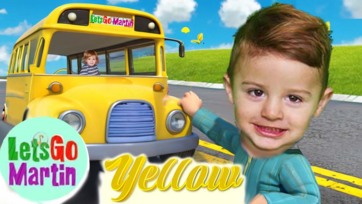Music and Learning

Fun Ways to Learn Through Music
Fun Ways to Learn Through Music
Making learning enjoyable is one of the most effective ways to engage children. When learning feels like a fun activity, kids are more likely to stay focused, motivated, and excited about discovering new things. One of the best ways to achieve this is through the power of music. Music is not only a tool for entertainment but also an excellent way to teach children new concepts while keeping them entertained.
Engaging Kids with Educational Songs
One of the most straightforward and effective ways to use music for learning is through educational songs. These songs can cover a wide range of topics, from the alphabet and numbers to science facts or foreign languages. By creating catchy tunes and using repetition, educational songs help children retain information much more easily. The melody and rhythm make it simpler for kids to remember important concepts, turning learning into a playful and enjoyable experience.
For example, a song about the days of the week can help children remember the order of the days, while a counting song can reinforce basic math skills. The combination of words and music engages both the verbal and musical parts of the brain, enhancing cognitive development and memory retention. Plus, kids love to sing along, which strengthens their language skills and boosts their confidence.
Interactive Music Games for Active Learning
Another fun way to incorporate music into learning is through interactive music games. These games can include activities like clapping along to the beat, dancing to rhythm, or even acting out parts of a song. This kind of interactive learning helps children develop coordination, listening skills, and attention span.
For instance, a game where kids match the sounds of different instruments to their images can help them learn about music in an engaging way. Alternatively, a rhythm game where they follow along with the beat of a song can improve their understanding of timing and musical structure. These activities also encourage children to be active participants in their learning process, making the entire experience more engaging and memorable.
Using Music to Teach Emotional and Social Skills
Beyond academic learning, music also provides an opportunity for kids to develop important emotional and social skills. Singing and playing music in groups teach children how to work together, listen to one another, and respect others' contributions. These lessons in teamwork can have a lasting impact on their social development.
Furthermore, music can be an emotional outlet for children. Certain songs can help them express their feelings or understand different emotions, such as happiness, sadness, or excitement. For example, songs with positive and uplifting messages can help children feel confident, motivated, and ready to take on challenges. On the other hand, songs with slower tempos or calm melodies can help children relax and regulate their emotions, which is particularly helpful during stressful moments.
Incorporating Music into Everyday Activities
Another great way to make learning fun is by incorporating music into everyday activities. Whether it’s using a song to teach kids about hygiene—like brushing their teeth to a tune—or playing a lullaby before bedtime, music can be a constant companion in a child’s day-to-day routine. This approach not only reinforces good habits but also makes everyday tasks more enjoyable.
For instance, a morning song that helps kids get ready for the day can make the process more structured and fun. Similarly, a bedtime song can help children wind down and feel comforted as they transition to sleep. These music-driven routines create a sense of stability and consistency, which helps children feel secure while reinforcing important life skills.
Supporting Creativity and Self-Expression
Finally, music gives children the freedom to explore their creativity and express themselves in unique ways. Whether through composing their own simple tunes or dancing to their favorite songs, kids are encouraged to explore their imagination and discover new ways of expressing how they feel. This creative exploration is a vital part of child development, as it allows kids to think outside the box and build their problem-solving skills.
Incorporating music into learning activities provides endless opportunities for children to be creative. It encourages them to experiment, take risks, and develop a sense of pride in their own creations. This boosts self-esteem and nurtures their natural curiosity about the world around them.